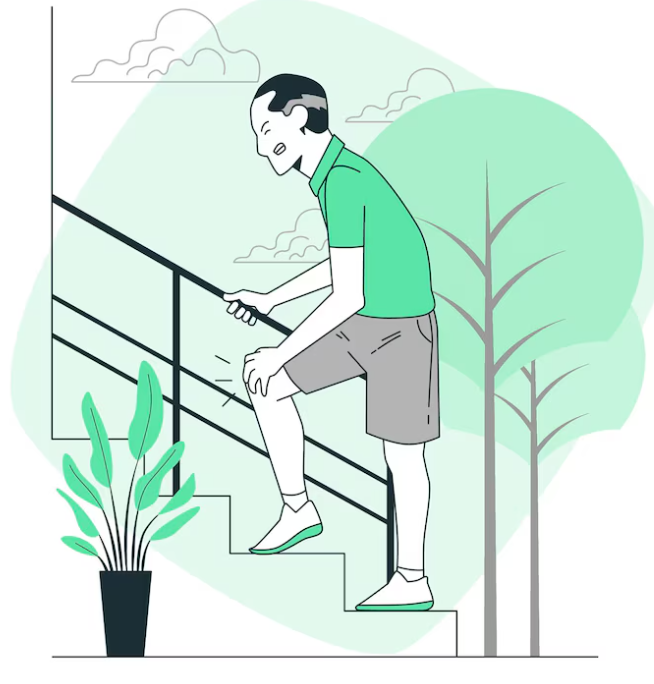
The Role of Hormones in Lifestyle Modifications for Managing Joint Pain: Understanding Imbalances
How Hormonal Imbalances Affect Joint Health and Pain: Key Insights and Solutions
Do you often feel joint pain that seems unrelated to physical activity? This discomfort may go beyond the usual wear and tear or injury—it could be linked to hormonal imbalances. Let’s explore how hormonal changes impact joint health and discover effective lifestyle changes to manage this type of pain.
Understanding the Role of Hormones in Joint Pain
Our bodies rely on a delicate balance of hormones to function correctly. When these hormones fall out of balance, it can lead to various health issues, including joint pain and inflammation. Here’s a closer look at how specific hormones influence joint health:
Estrogen and Joint Pain
Estrogen is well-known for its role in reproductive health, but it also plays a part in maintaining joint health. When estrogen levels fluctuate, such as during menstruation, pregnancy, or menopause, joint pain or stiffness can occur. For instance, decreased estrogen levels during menopause may lead to more inflammation in the joints, which could worsen pain.
Progesterone and Joint Inflammation
Progesterone, another hormone involved in the menstrual cycle, can also contribute to inflammation in joint tissues. Many women experience increased joint discomfort just before menstruation due to the body’s natural rise in progesterone. This hormonal shift may heighten sensitivity to pain in those with existing joint issues.
Thyroid Hormone Imbalance and Stiff Joints
Thyroid hormones are crucial for regulating metabolism and maintaining collagen, which supports joints. An imbalance in thyroid hormones can affect joint function, potentially causing stiffness, discomfort, or even swelling.
Cortisol and Inflammation in Joints
Cortisol, also known as the “stress hormone,” can rise significantly during times of chronic stress. High cortisol levels increase inflammation, which may lead to joint pain or exacerbate conditions like arthritis. Managing stress effectively is essential for keeping cortisol in check and reducing inflammation.
Testosterone’s Role in Muscle and Joint Health
Though testosterone is more commonly associated with male health, it’s also essential for muscle strength in both men and women. Low testosterone levels can reduce muscle mass, increasing strain on the joints and contributing to discomfort over time.
Lifestyle Modifications to Manage Hormone-Related Joint Pain
Making certain lifestyle changes can help manage joint pain and support hormone balance. Here’s what may help:
Low-Impact Exercise for Joint Health
Engaging in regular low-impact activities like walking, swimming, or yoga strengthens muscles around the joints, lessening strain and easing joint pain. Exercise has also been shown to support hormonal balance, which could reduce joint pain linked to hormones.
Anti-Inflammatory Foods for Joint Pain
Including anti-inflammatory foods in your diet can make a significant difference in managing joint pain. Foods like leafy greens, berries, whole grains, and fatty fish are known to support hormone balance and reduce inflammation. Avoid highly processed foods, sugary snacks, and excessive caffeine, as these may increase joint discomfort.
Stress Management to Reduce Joint Pain
Chronic stress triggers hormone imbalances that can raise cortisol levels, leading to more joint pain. To manage stress, consider practicing mindfulness techniques, deep breathing, and meditation. Lowering stress levels may help reduce hormone-related joint pain.
Quality Sleep and Joint Health
Adequate, restful sleep is essential for hormone balance and reducing inflammation in the body. Aim for 7-9 hours per night and try to follow a consistent sleep routine. Limiting caffeine and screen time before bed can also improve sleep quality and contribute to healthier joints.
Maintaining a Healthy Weight
Keeping a healthy weight reduces pressure on joints, particularly those in the knees and hips. Weight management helps alleviate some of the strain that can exacerbate joint pain and is especially beneficial for those experiencing pain due to hormonal factors.
Conclusion
Understanding how hormonal imbalances affect joint health can empower you to make lifestyle adjustments that reduce pain. Incorporating gentle exercises, focusing on an anti-inflammatory diet, managing stress, and prioritizing sleep may significantly improve both hormone and joint health. By taking these proactive steps, you can enhance your quality of life and support long-term joint well-being.
To seek medical advice, always consult a Doctor. Here are our recommended experts. Click Here
To read more on Joint Pains. Click Here


